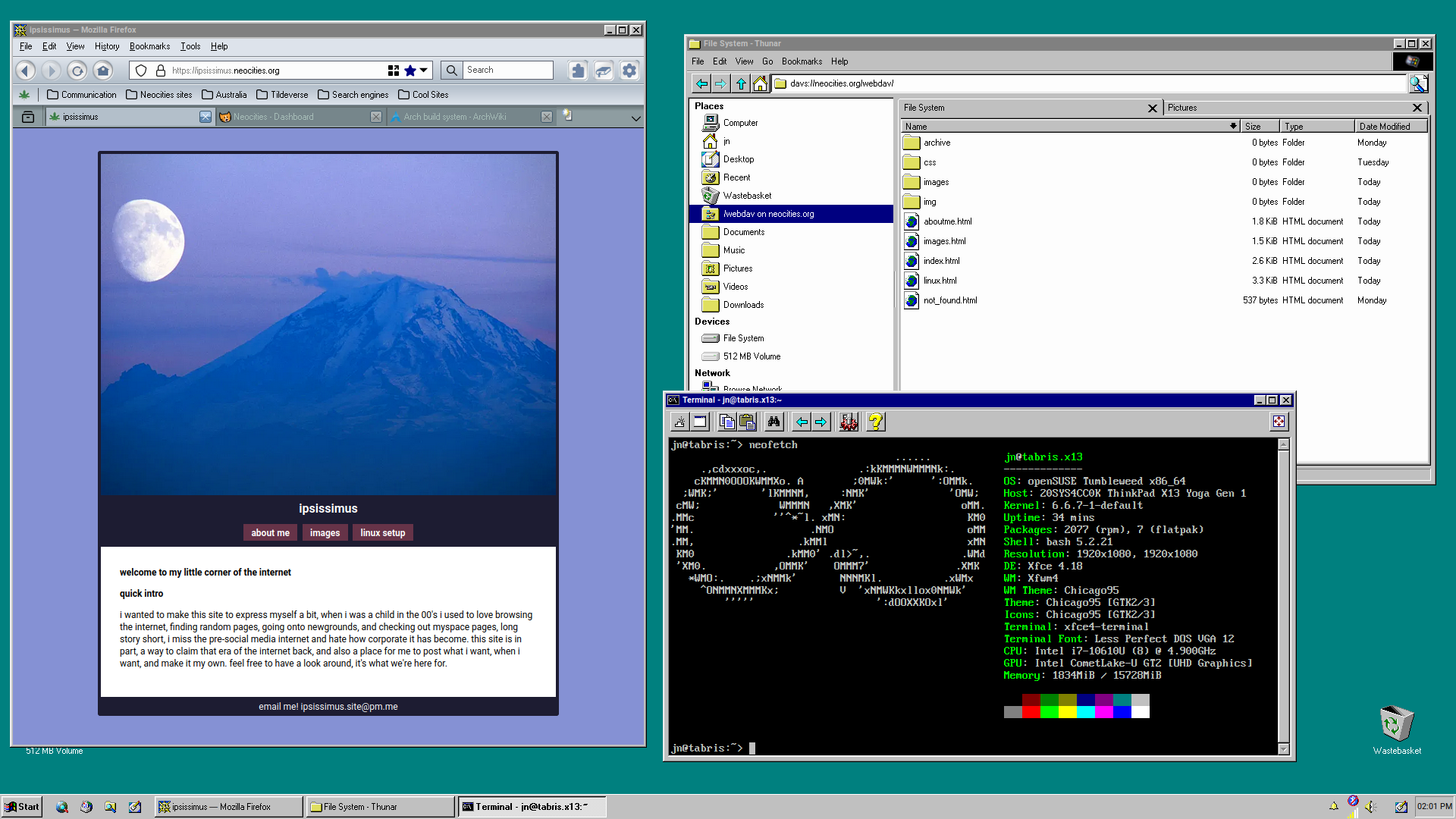my linux setup
i use opensuse tumbleweed on a thinkpad x13 yoga (gen 1 & intel)
i find that opensuse gives me a good mix of both new software and reliability
my first ever linux distribution was ubuntu 16.04 with the unity de, i've still got fond memories of it but my workflow has changed, and i'm not too keen on how canonical are pushing snaps
after using ubuntu up until 20.04, i switched over to fedora 33, which i then used as my main distro up until june 2022, when i switched to opensuse
i ended up switching because i had some issues with secondary displays at the time (was using an nvidia gpu on a desktop) and decided to switch to a rolling release
since then i have been using opensuse in one way or another, the desktop i was previously using has been switched to windows 10, only for driver support for a thrustmaster steering wheel - couldn't get it quite right under linux, and my laptop has been running opensuse quite happily. i'm currently using xfce with the chicago95 theme, and have been for over a year, was previously using gnome but wanted a simpler looking machine rather than the gnome workflow which i never used to its full potential since i dont like virtual desktops
here's a screenshot of my desktop, it's simple and it works for my purposes

why opensuse?
i like opensuse because it gives me an up to date system like other rolling releases, such as arch, but with some incredible features;
yast - brilliant bit of kit, it does package management, repository management, think of it like the windows control panel but for linux, you can configure most of what you need from a sysadmin perspective in there
snapper - snapper is a feature used in opensuse that holds bootable snapshots of the system whenever new software is installed, or updated, it's saved me a few times in the past and i'm sure it will again, if an update goes wrong it's a two minute process to revert the changes and act as if it didn't happen
obs - admittedly it's not something i've used much, only a few times for very specific software needs, but it's esentially opensuse's answer to the aur on arch linux